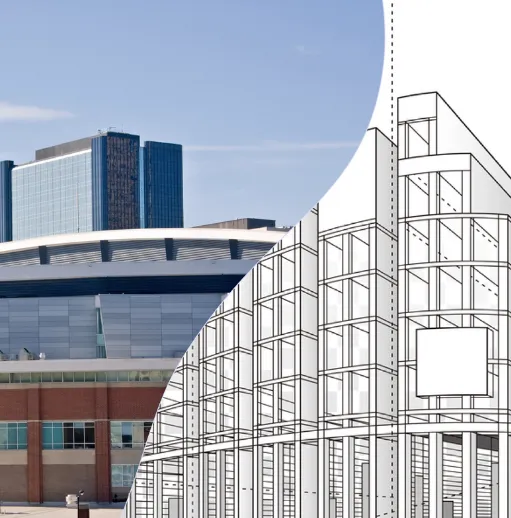
Office. Facility. For many, these words mean basically the same thing. But to someone familiar with the roles and responsibilities behind these job titles, they’re quite different. On the most basic level, an office manager facilitates the work employees do; a facility manager oversees the place in which that work happens. Of course, there’s more to it than that. And by understanding the differences, you can make better decisions about what you need and who to hire.
What does an office manager do day to day?
An office manager is a type of administrator. Their primary duties involve managing the needs of employees and, sometimes, the employees themselves. Office managers typically facilitate work in the workplace, ensuring people get what they need — supplies, accommodations, or information. Some of the universal job duties of an office manager include:
- Managing various office budgets
- Organizing meetings and arranging appointments
- Supervising clerical staff and liaising with management
- Creating and implementing office standardizations and processes
- Ordering and organizing office supplies
In a sense, office managers fill in the gaps within the workplace. Much of what they do enables others to work without interruption — ensuring the office is well-supplied or arranging meetings with clients.
What is the career path for an office manager?
An office manager can be an entry-level position; however most companies choose someone with management experience to fill the role. Office managers usually hold a degree in business administration or a similar field. Companies may choose to hire a new graduate to manage their office or promote from within, giving the job to someone who already understands the demands and expectations of the job.
Office managers need organization and communication skills above all else. Attention to detail is of critical importance — especially since office managers typically handle sensitive tasks, like balancing the office budget or filing proprietary information. Leadership skills are a definite plus, as the office manager is frequently the point of contact when people need help. Finally, analytical skills are a must-have, since problem-solving is a central aspect of the job.
Another important skill is negotiation. Being an office manager is not about getting people what they want. Instead, it’s about getting them what they need, and office managers need to carefully navigate over the gap. Negotiating skills also come in handy when there are competing demands from the office staff. Getting everyone to agree on something as simple as the office temperature or when to put up seasonal decorations can, with some groups, quickly get out of hand if not handled carefully.
What does a facility manager do?
Facility managers focus on the big picture: the workplace itself. They’re responsible for providing employees with a place to work — one that’s safe, comfortable, and accommodating. If an office manager is responsible for employees, facility managers are responsible for everything that surrounds them. Jumping back to the topic of office temperature, the office manager sets the thermostat; the facility manager makes sure the furnace works.
Their list of duties is long, spanning facilities at both the macro and the individual workstation levels. Some of the most prominent duties of a facility manager include:
- Integrated facilities management
- Building maintenance, upkeep, and improvements
- Vendor management
- Space planning and workplace design
- Real estate forecasting and lease management
- Move scenario planning and execution
Facility managers also handle employee interaction with the workplace. Things like wayfinding and support tickets fall into the realm of facilities management because they involve the actual building itself. Similarly, facilities also oversee space utilization and workplace analytics.
What is the career path for a facility manager?
The road to becoming a facilities manager is less direct than that of an office manager. Currently, there aren’t any formalized facilities management degree programs. Most facilities managers hold a bachelor’s in business, with a certificate in facilities management or advanced training in the subject.
Certification and training through an organization like the International Facility Management Association (IFMA) is essential. There are several different distinctions. Most professionals opt for the Certified Facility Manager® (CFM) title, though titles like Facility Management Professional™ (FMP) also hold value. Once certified, professionals need ongoing accreditation and training to stay abreast of evolving facility trends.
Accreditations and certifications are also available from the Building Owners and Managers Institute (BOMI), Leadership in Energy and Environmental Design (LEED) program, and the U.S. Green Building Council (USGBC). All play a vital role in forward-thinking facilities management.
How do you know if you need an office manager or a facility manager?
It’s like asking, “Does my restaurant need a chef or a dishwasher?” The answer is “It makes a lot of sense to have both. Things are going to run a lot more smoothly and your life is going to be a lot easier.”
But there are times and places, smaller companies or ones in niche industries, where you must choose one or the other.
If the work at your company is mostly administrative, you need an office manager. When you have a lot of white-collar workers, you need someone to make sure the office is properly stocked and that everyone has the technology they need to work efficiently.
For a facilities manager, you can think about the types of problems you tend to deal with and decide from there. So, you should get a facility manager if you have:
- Recurring issues with basic services, including heat, water, and electricity
- Frequent safety incidents that could have been easily avoided
- Poor maintenance cost tracking, including vendors and inventory
- Disproportionate amount of emergency or reactive maintenance
The money you put into the salary for a facility manager is an investment that returns lower costs, more reliability.
What are the similarities between an office manager and a facility manager?
There’s often confusion between the duties of an office manager and a facilities manager. In name, they’re quite similar; however, in practice, they’re two sides of the same coin. A successful workplace needs both to function. Employees and the business at large benefit from the diligence of both professionals and their abilities to improve how work gets done. Through their combined efforts, employees enjoy a workplace ready to function as needed on a daily basis.


